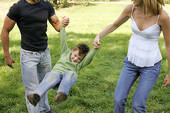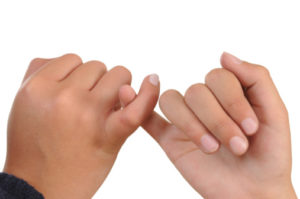Preteen father of two, Gary, a 38-year-old statistician was horrified when he read that from 2009 to 2022, suicides in young people had risen by 69.5% in the United States. He panicked, as a tumult of thoughts raced through his mind – searching for evidence where he failed to take action, or was over cautious and did something he ought to have let go.
Then he learned from the same report The New Crisis of Increasing All-Cause Mortality in US Children and Adolescents, March 13, 2023 published online, that since 2016, more than 90% of poisoning deaths at ages 10 to 19 years have resulted from unintentional drug overdoses.
Were his kids using drugs without him knowing?
Was he being the positive and available father he aspired to?
Was he complacent because he thought his education and interest in positive fathering was enough to protect him from this plague affecting young people?
Did he think it couldn’t happen to him or his kids because they couldn’t possibly be prone to the anxiety, depression, and body image issues?
The panic turned to acute and then chronic stress.
Positive Fathering is most effective during transition points in a child’s life
The most effective positive fathering is done during transition points in a growing person’s life. From infancy to toddlerhood; from toddlerhood to mobility independence; from leaving mom’s coattails to exploring the environment; from family envelopment to the first day of pre-school.
The father is the one that is the driving force and facilitator of these phases of development that propel the natural progression towards independence.
Positive fathering is vital in helping shape and regulate the nascent self-image of their youngsters.
Positive Fathering Failures:
If these stages have not been fully implemented and successful then the outcomes are either:
a. A child turning inward, being quite, secretive, uninterested in family or social life. Such a child is most at risk of not forming a healthy self-identity. There are other risks such as the development of eating disorders, digestive tract diseases, Irritable Bowel Syndrome, Obsessive Compulsive Disorders, anxiety and depression, and or self-harm. In worst case scenarios, suicide attempts by girls, and completed suicides by boys.
Alternatively,
b. A child might turn outward, acting out, missing school assignments, lying, pretending, aligning themselves with peer group gangs who provide a sense of belonging where the child can self-identify easily; become prone to “them and us” mentality, and are most at risk of drug abuse, bullying, harming others, self-harm, and suicide attempts or completed suicides.
Postive Fathering failures in style of fathering
• Being intrusive and wanting to know everything in their minds
• Being forceful in order to have your way
• Demonizing the child because they don’t conform to your hopes and expectations of being a “good” version of you.
• Shaming your child when they are disobedient, choose people to love or be with that you disapprove or – coming from your place of hurt.
• Threatening to disown your child when they displease or hurt you
Positive Fathering for a preteen with failing grades and an addiction to video games
Gary was very worried about whether he was doing a good job at positive fathering with his 11-year-old son Kyle who buried himself in video games, didn’t want to do other activities and who didn’t seem to care about his failing grades in middle school. Gary was torn between getting on his son’s case or letting Kyle do his thing while offering help and advice if asked.
When Gary was at his most worried he imagined Kyle turning to drugs and becoming a lazy couch potato, never leaving home. When the worry reduced, Gary comforted himself with the thought that Kyle had to live with the consequences of his poor school performance and narrow focus in game.
Positive Fathering involves focusing on preteen fears of growing up
Gary’s concern that Kyle might never leave home was a good clue as to what Kyle was struggling with. The fact that Kyle was open about not wanting to disappoint his father by his poor grades and inertia suggests that Kyle was conflicted about taking care of dad’s feelings versus his own future. Preteens are commonly afflicted by growing into adolescents when an element of separation is natural, and the need to stay young and tied to their parents, maintaining that mutual sense of safety, security and reliability that goes with being a younger child. Kyle was putting his growth on hold, hanging on to his dependency on Gary so that Kyle didn’t have to feel the terror of separation. If he separated as he progressed into adolescence he would have to think and make choices for himself that would interfere with this enmeshed dependent relationship and cause anxiety and instability.
Positive Fathering for an emotionally torn preteen
Once Gary realizes that Kyle isn’t just being disobedient or unmotivated then positive fathering can set out to tackle this very delicate but hugely significant transition point for them both.
• Positive fathering would involve acknowledging to Kyle that it’s okay to make choices for himself without fearing the loss of love, attention, or validation from Gary.
• Positive fathering requires Gary to separate his own personal disappointment that Kyle is a waster given for fortunate he is to have the best of everything, and step into the fear WITH Kyle of being thrown out of the nest and having to be completely independent.
• Positive fathering means that Gary talks to Kyle about the boy having his own disappointments, goals, wishes, plans and strategies for his immediate future – and that he can pursue them safely, even if dad isn’t approving of them all.
• Positive fathering includes sharing your own experience of being a preteen and the machinations you had to go through with your parents in order to feel connected, yet be your own person.
Positive Fathering is allowing your child to be themselves rather than a clone of you
It’s natural as a father to want your child to want and need you, even to emulate you. The possibility of that sameness is like an endorsement of you and personality, values and fathering. But that hope can create tensions in the father-child relationship, if the father feels let down when the child fails to enjoy the same sport, the same food (for example if your child chooses to be a vegan while you the dad remain a meat eater), and the same rhythms. Many fathers feel deeply wounded if their child is more interested in video games than basketball; or is more into scooters than bike riding. That comes across to the child as a disapproval, a disavowal and a disowning of their true selves. They either do things in secret to avoid feeling father’s irritation, or they pretend to take on the things that dad likes, killing off their true selves in the process.
Positive fathering to help your child be their true selves
- Encourage your child to be different and separate when they need to test out their self-identity, without denegrating them as ‘traitors.’
- Show curiosity and interest in your preteens passions, and talk to them about your childhood interests and how your parents attitudes towards them.
- Give your preteen ‘expert status’ on their passion of choice, to help you learn about it, even if you don’t swallow it whole.
- Listen attentively when your preteen is excited to share their new knowledge and experience regarding their passions, their fantasies and ideas about how it informs their choices for the future.
- Share your views and attitudes with your preteens – they need something to butt against, but without making it an all-or-nothing experience that forecloses any futher exploration, discussion or joint endeavors.
copyright, Jeanette Raymond, Ph.D. 2023
You might also like:
Managing parental frustration when your child cannot make choices





